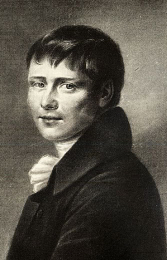Heinrich von Kleist's "Michael Kohlhaas" is a gripping narrative that delves into themes of justice, morality, and personal agency in the face of systemic injustice. Set in 16th-century Germany, the novella follows the eponymous protagonist, a horse dealer who, after suffering grave injustices at the hands of a nobleman, embarks on a relentless quest to reclaim his dignity. Kleist's literary style is marked by its psychological depth and poignant prose, incorporating elements of Romanticism that highlight the conflict between individual conviction and societal norms. This work operates within the broader literary context of early 19th-century German literature, reflecting the tumultuous societal changes of its time while prefiguring existential concerns that would later dominate modern thought. Heinrich von Kleist, a key figure of German literature, grappled with themes of conflict and alienation throughout his life, which arguably informed his writing of "Michael Kohlhaas." His own tumultuous existence, marked by struggles with mental health and societal rejection, resonates with Kohlhaas's plight, emphasizing the intricacies of human emotion and the pursuit of justice. Kleist's profound engagement with historical contexts and philosophical questions infuses the novella with a timeless relevance, challenging readers to contemplate the moral implications of their actions. This novella is highly recommended for readers interested in the intricacies of human morality and the complexities of personal justice. With its innovative narrative structure and rich thematic depth, "Michael Kohlhaas" invites readers to reflect on the nature of righteousness and the often fraught relationship between the individual and authority. It serves as a powerful exploration of the struggle for dignity in a world rife with inequality, making it a must-read for both literary enthusiasts and those seeking to understand the human condition.
Dieser Download kann aus rechtlichen Gründen nur mit Rechnungsadresse in A, B, BG, CY, CZ, D, DK, EW, E, FIN, F, GR, H, IRL, I, LT, L, LR, M, NL, PL, P, R, S, SLO, SK ausgeliefert werden.










